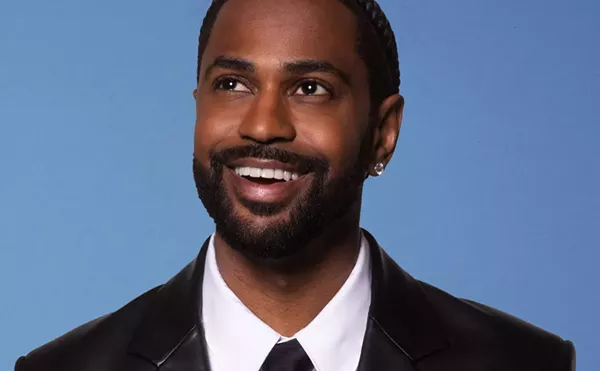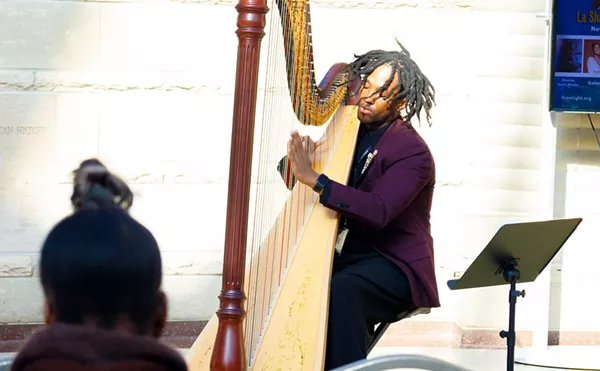
Audio By Carbonatix
[
{
"name": "GPT - Leaderboard - Inline - Content",
"component": "35519556",
"insertPoint": "5th",
"startingPoint": "3",
"requiredCountToDisplay": "3",
"maxInsertions": 100,
"adList": [
{
"adPreset": "LeaderboardInline"
}
]
}
]
It takes exactly 16 seconds to realize there’s something desperate about the Deadstring Brothers. There are 15 seconds of a simple drumbeat and then — out of nowhere — a bomb drops. Fistfuls of piano, guitars and bass crash across the downbeat in ragged unison. A moment later, when the band abruptly halts and Kurt Marschke revives the most staid of all opening one-liners (“I woke up this mornin’ …”) with breathless urgency, the Brothers give the chilling impression that every note might well be their last, that at any second the car could veer off the edge of the road and explode on the rocks below.
It’s that kind of nervy tension that the carries the Detroit quintet through every track of their eponymous debut. The band’s unapologetic and creative approach (perhaps most evident in the dialogue between Aric Karpinski’s vigorous piano playing and Pete Ballad’s loping pedal steel) is earnest enough to transform a handful of potentially dull, mid-tempo alt-country numbers into impassioned manifestos. At center throughout are Marschke’s narratives filled with the ominous tirades of scorned lovers: “You may not yet know who I am,” he warns in “Entitled” before threatening that that the price of coveting thy neighbor’s wife is now “a knife in the neck.”
But, to the Brothers credit, they don’t simply dish out alpha-male Americana. Their quieter moments (especially “It Takes Love” and the deft reharmonization of folk standard “Long Black Veil”) are every bit as convincing as their fight songs. Aside from a lull toward the back of the album (marked by the regrettable jam-band vibe of “Jones Street” and the slightly overzealous ballad, “Such a Crime”), one would be hard pressed to find a single disingenuous strain here.
This clarity of the record’s unbridled expression is a testament to the band’s collective vision, which puts the muscle behind Marschke’s weighty songwriting. In other words, The Deadstring Brothers is one of the most compelling Detroit efforts in some time. But the beauty of the Brothers lies in their capacity for uncomfortable truths, and their ability to state them as if their very lives depended on it. A lesser band would have played it safe.
E-mail Nate Cavalieri at letters@metrotimes.com.





